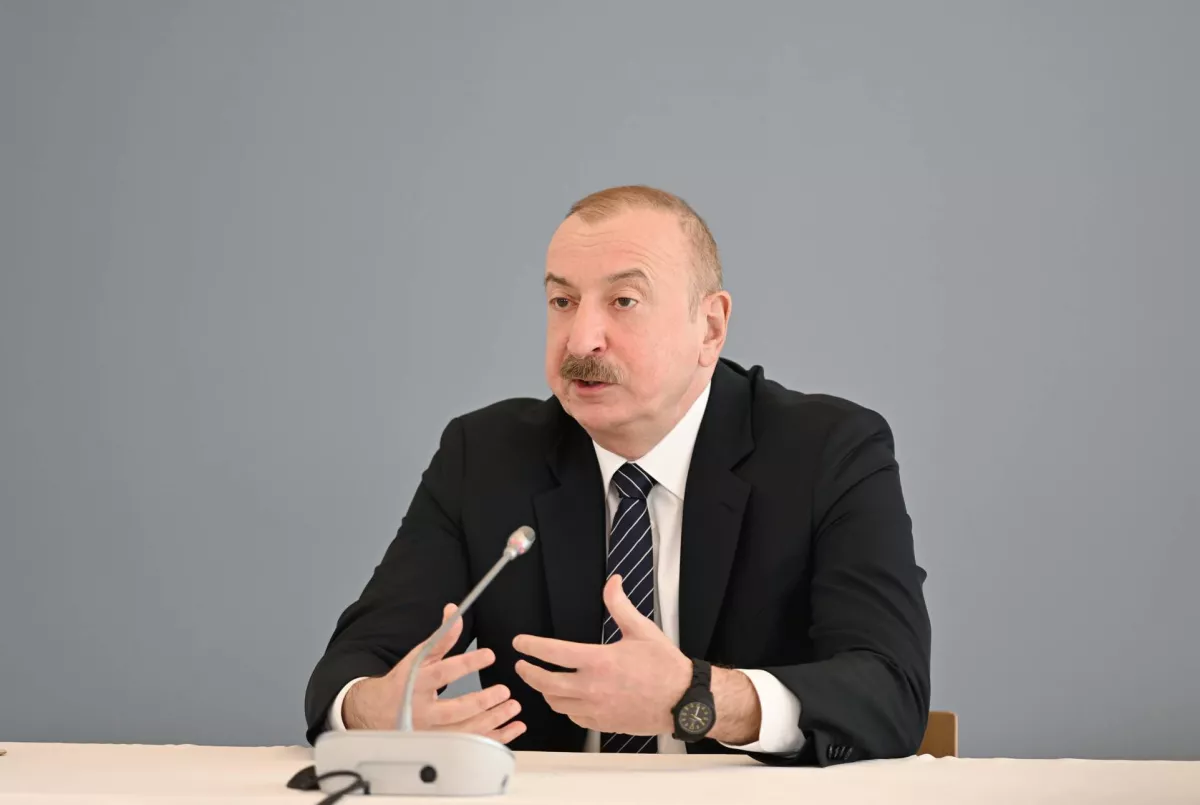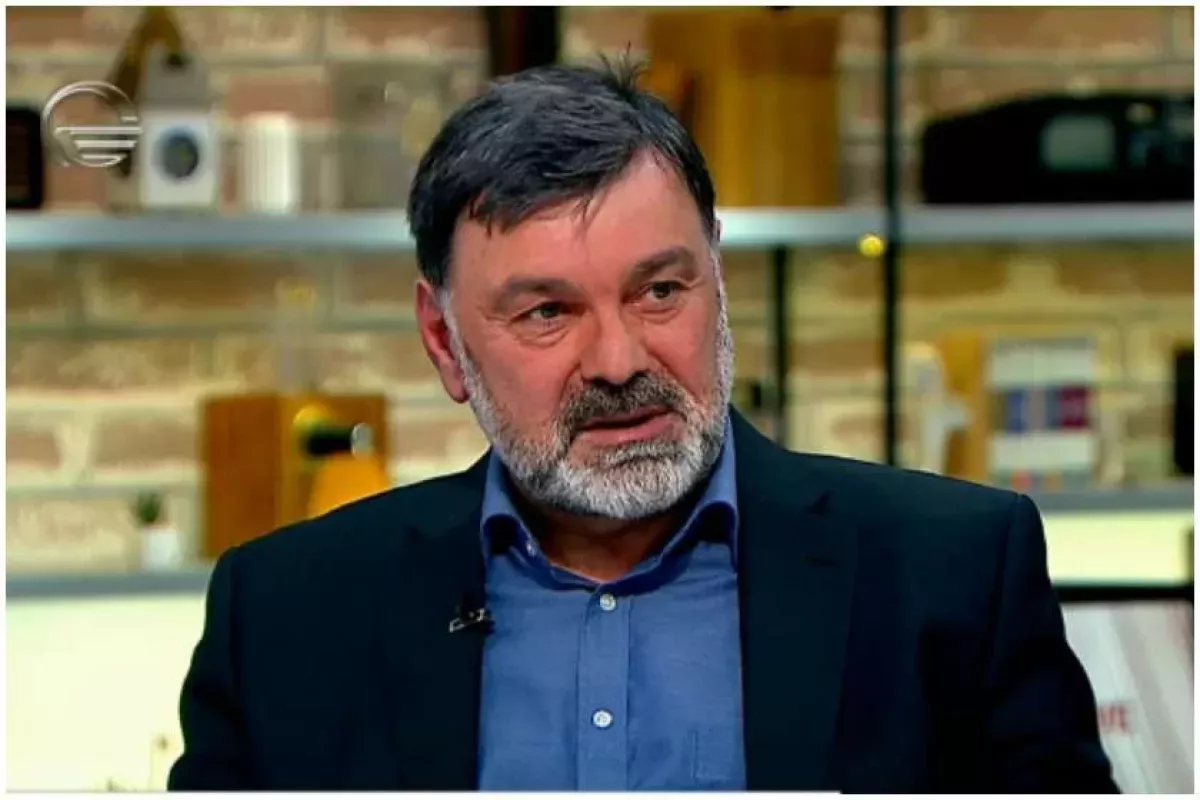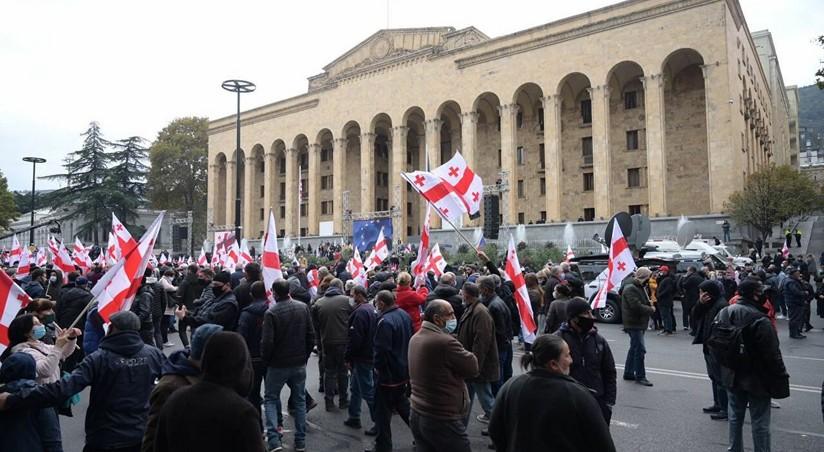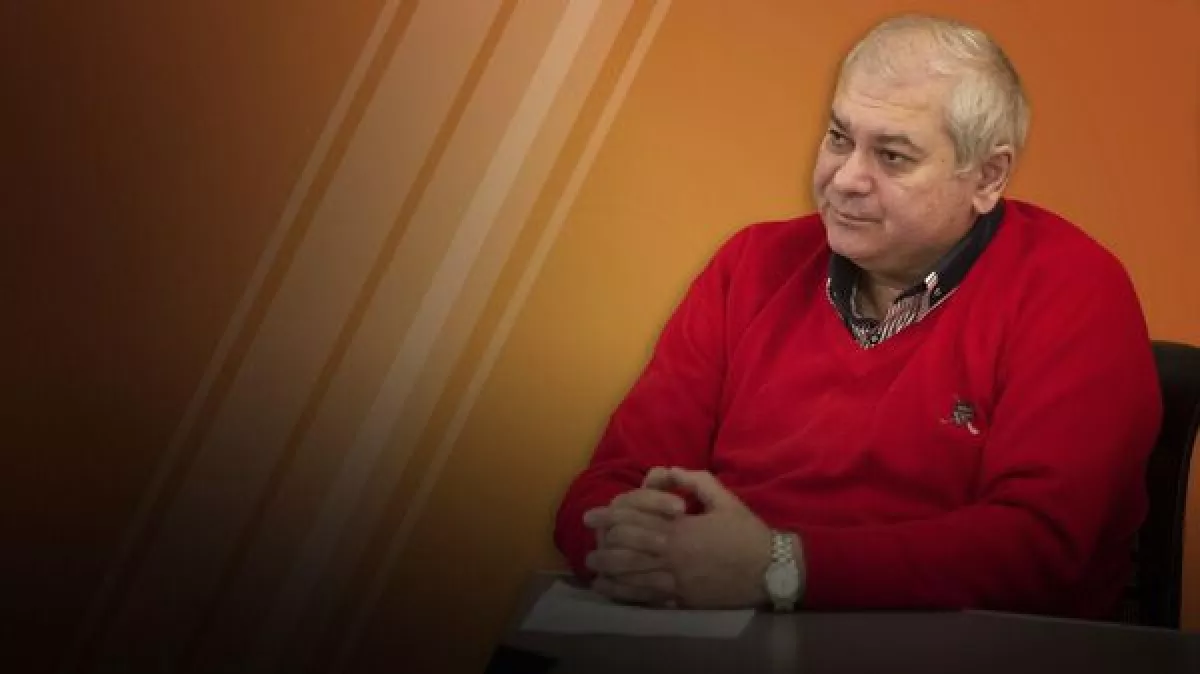The colonial tone is unacceptable Georgian analysts on PACE and President Aliyev’s support
During its spring session, the Parliamentary Assembly of the Council of Europe (PACE) adopted a critical resolution on Georgia, calling for the immediate release of all "political prisoners" and highlighting other issues related to democracy and human rights. The document emphasizes that the "democratic backsliding" caused by the policies of the Georgian Dream party "would not be conducive to ratifying the credentials of a new Georgian delegation should they be presented at a future Assembly part-session." The resolution establishes a series of criteria, the fulfillment of which is a mandatory condition for the recognition of the Georgian Dream delegation's credentials.
It should be noted that in late January, Georgia suspended its participation in PACE. This decision followed the recognition of Georgia's mandate with limitations. To achieve full recognition in the Assembly, the country's authorities were required to make political concessions, which Tbilisi refused, and subsequently recalled its delegation.
The ruling Georgian Dream party reacted with great displeasure to the new PACE resolution on Georgia.
"What they are doing is a repetition of Soviet approaches—disrespect for the sovereignty of countries and peoples," said Parliament Speaker Shalva Papuashvili in response to the criticism during debates on Georgia at PACE.
At the same time, in Tbilisi, statements made in support of Georgia by Azerbaijani President Ilham Aliyev during his speech at the international forum "Facing the New World Order" in Baku were welcomed with enthusiasm.
"So, I think the Council of Europe shot itself in the foot. They wanted to discriminate against Azerbaijan, to isolate us, but actually, they isolated themselves from the Caucasus. And look—recently, the Georgians did the same. I fully support the decision of the Georgian government to put an end to their presence there because, again, it was discrimination.
Unfortunately, this colonial thinking among some European politicians—especially those who could not or didn't manage to be elected to the European Parliament and found their place in the Council of Europe Parliamentary Assembly—is counterproductive. I said at that time: did anyone in Azerbaijan notice that we're no longer there? No. We can live like that.
By the way, the Secretary General of the Council of Europe came to Baku last November to attend COP29 and asked me that we do not pull back completely from the organization. I said, ‘Okay, if you ask, we will stay.’ But whether we stay or leave, nothing changes here," said Aliyev.

President Ilham Aliyev's speech in support of Georgia demonstrated that the world is accurately perceiving the ongoing processes in the country, stated the ruling Georgian Dream party. Georgian authorities also expressed gratitude to the Azerbaijani leader for this support. As noted by Nikoloz Samkharadze, a member of parliament from the Georgian Dream party, Baku has always supported Tbilisi during the most challenging times, and President Aliyev's speech once again proves this, showing that the world is correctly interpreting the processes in Georgia. According to the deputy, Europe is trying to exert influence not only on the Georgian authorities but also on the people themselves, but no threats can force the country to yield.
So, how do Georgian experts view the events in PACE? Georgian analysts shared their thoughts with Caliber.Az on this matter.

The founder of the "United Neutral Georgia" movement, political scientist Bidzina Giorgobiani, believes that in his speech, Azerbaijani President Ilham Aliyev made a very sober assessment of the situation and timely addressed the behavior of Ursula von der Leyen during her meeting with the leaders of Central Asian countries, when she stated that the Trans-Caspian route should follow a different path.
"Yes, there is enough space and cargo for Armenia to be involved in this project with us, but lately, they have been behaving very strangely. We, Georgia and Azerbaijan, work closely with partners both in the West and Central Asia, as well as with China, to implement the Belt and Road project, but Armenia has a different vision on this matter. Armenians try not to participate in meetings on this topic and behave very strangely. So, I am grateful for and support Mr. Ilham Aliyev, his speech, and his vision on this project," said the politician.
As for the case with the PACE resolution, the Council of Europe has a colonialist attitude towards the South Caucasus, that’s for sure, he is convinced.
"They are trying to wedge themselves in here, attempting to influence the internal situation through NGOs they fund and puppet parties, which you can't even really call parties. These are small, fragmented groups that hold some sort of gathering in the center of Tbilisi in the evenings and call it a 'protest.' But they don't really say what they're protesting against. This all started after their defeat in the parliamentary elections. Initially, they were somewhat pleased, for some reason thinking they had won, but then it turned out they had only secured a minority in parliament. Immediately after that, they began protesting, claiming the elections were rigged, and so on. But after a while, they started opposing the Georgian leadership's decision to suspend the process of European integration until 2028. And now, nobody knows exactly what they are protesting against. Well, it’s about 150-200 people at most. Every evening they gather and put on some sort of theatrical performance, nothing more," said the leader of the movement.

According to him, the Council of Europe, the European Parliament, and European structures in general have their own goals for the South Caucasus.
"And to achieve these goals, they use these small, supposedly political groups. These are former officials funded by the former fugitive Minister of Defense, David Kezerashvili, who himself receives funds from several Western organizations. This happened after USAID and NED (National Endowment for Democracy, an American organization founded in 1983 to promote democracy) were dissolved. He runs some call centers in the West, and even in Moscow, a group that was under his command was arrested.
PACE intended to impose its influence on Georgia's political system in an ultimatum form. It didn’t succeed, and the Georgian delegation refused to participate in the Assembly's work until Europe starts recognizing the sovereign interests and sovereignty of Georgia over its own territory, until they begin to engage with Georgian authorities on an equal footing. The colonial tone is unacceptable.
I believe that Georgia, Azerbaijan, and Türkiye now form a united geographical area and a unified political partnership. We have proven that our cooperation with Azerbaijan and Türkiye is indispensable in the South Caucasus. To maintain peace in the South Caucasus and the Mediterranean-Black Sea region, it is necessary to complement and strengthen the provisions of the Georgia-Azerbaijan-Türkiye strategic partnership agreement. This way, we can protect peace and prevent political upheavals in the region," emphasized Giorgobiani.

Professor of Political Science and Honoured Journalist of Georgia, Badri Nachkebia, notes that indeed, one of the main news stories in the country was the adoption of such a sharply negative resolution on Georgia by PACE.
"In principle, Georgian Dream was expecting something like this. In this case, we see that there is unprecedented pressure on the current Georgian leadership using various methods from European structures. Georgian Dream emphasizes that this is an interference in the internal affairs of the country. They point out that under the previous government, fundamental human rights were violated, there were a huge number of arrests, torture in prisons, and killings of innocent people. Yet, at that time, European structures remained strangely silent on this matter," the professor recalls.
But today, he says, the most discussed topic in Tbilisi is the support from Georgia's strategic partner, Azerbaijan.
"This is essentially the defense of Georgia through the figure of Azerbaijan's leader, President Ilham Aliyev, who expressed his negative stance on the actions of European structures towards Georgia.
This is immense support for Georgia because it's one thing when someone of little significance speaks out, and quite another when a recognized leader of the region, one of the foremost figures in the post-Soviet space, and beyond, raises their voice. When such a hand of support is extended, it truly has a positive impact on the entire Georgian society.
We know that in Georgia, the brotherly relations between our peoples are highly valued, and President Ilham Aliyev's recent statements have once again confirmed and strengthened this bond.
I believe that to some extent, after Ilham Aliyev's speech, European structures will likely reconsider the situation, as there are signs that after their reckless actions towards our countries, European structures have seen our unity and commonality.
And of course, the fact that influential countries in the region are together makes them much stronger. This once again confirms the point that European structures are already doing everything they can in relation to Azerbaijan to prevent it from leaving PACE," concluded Nachkebia.








